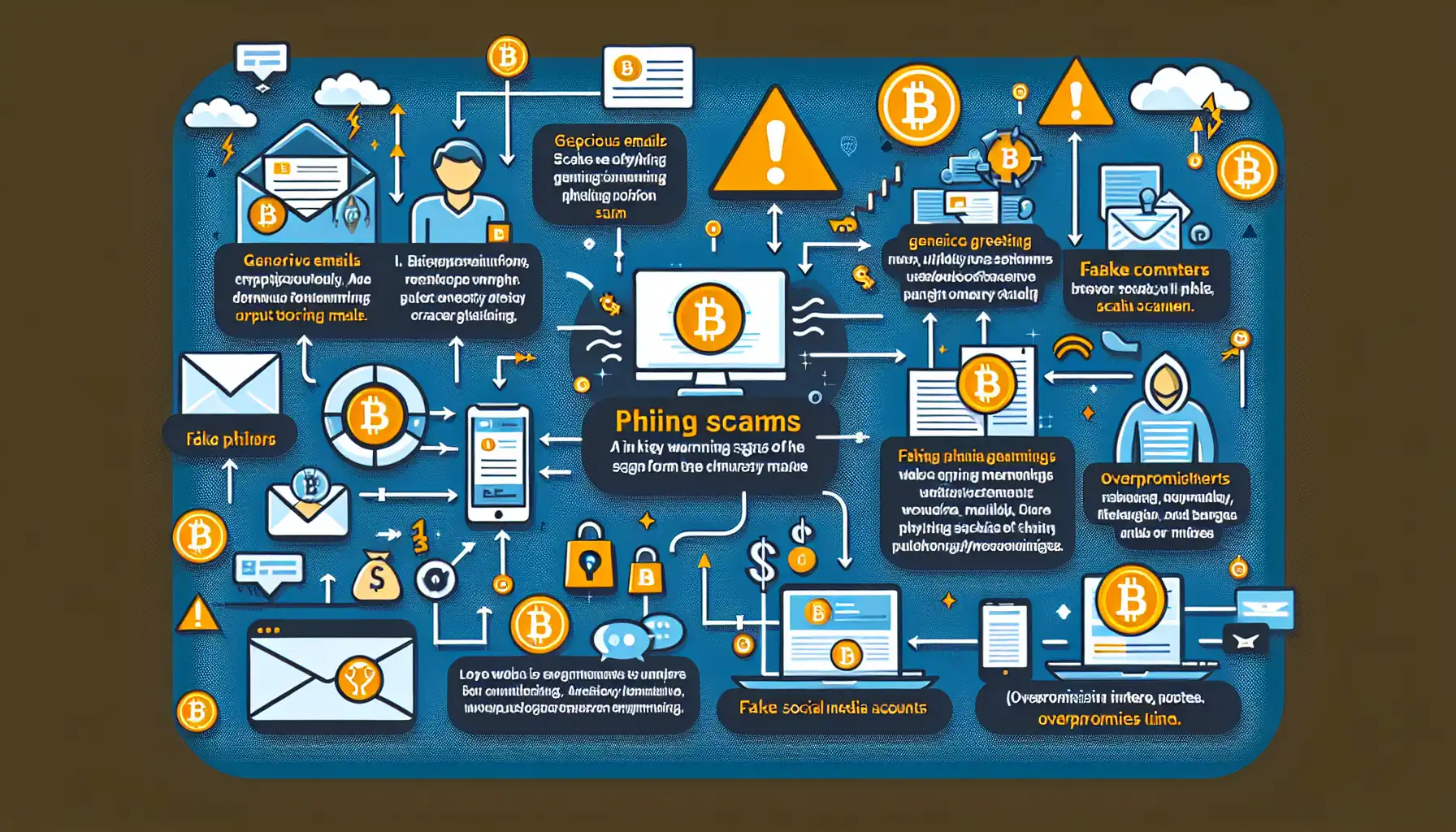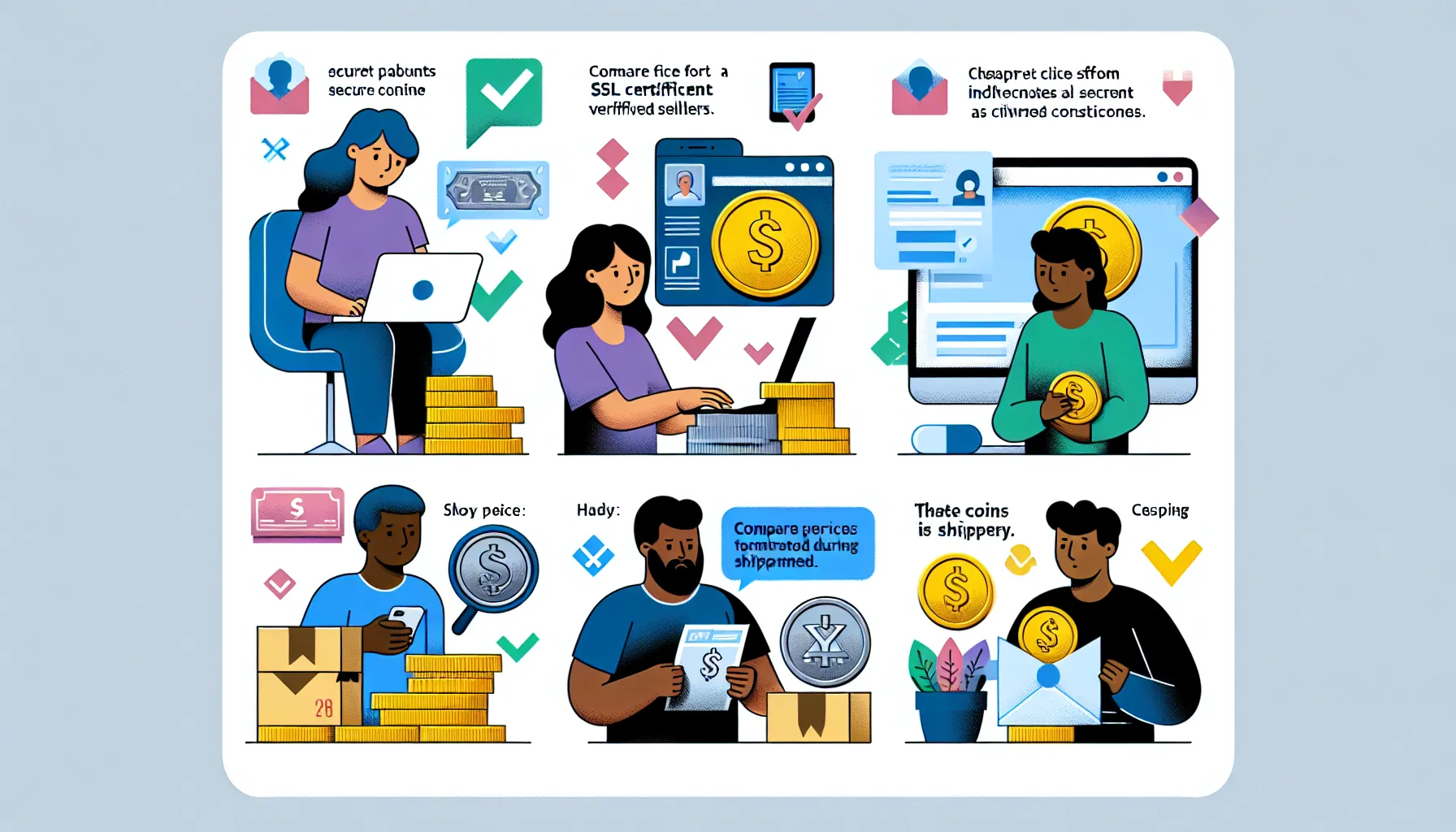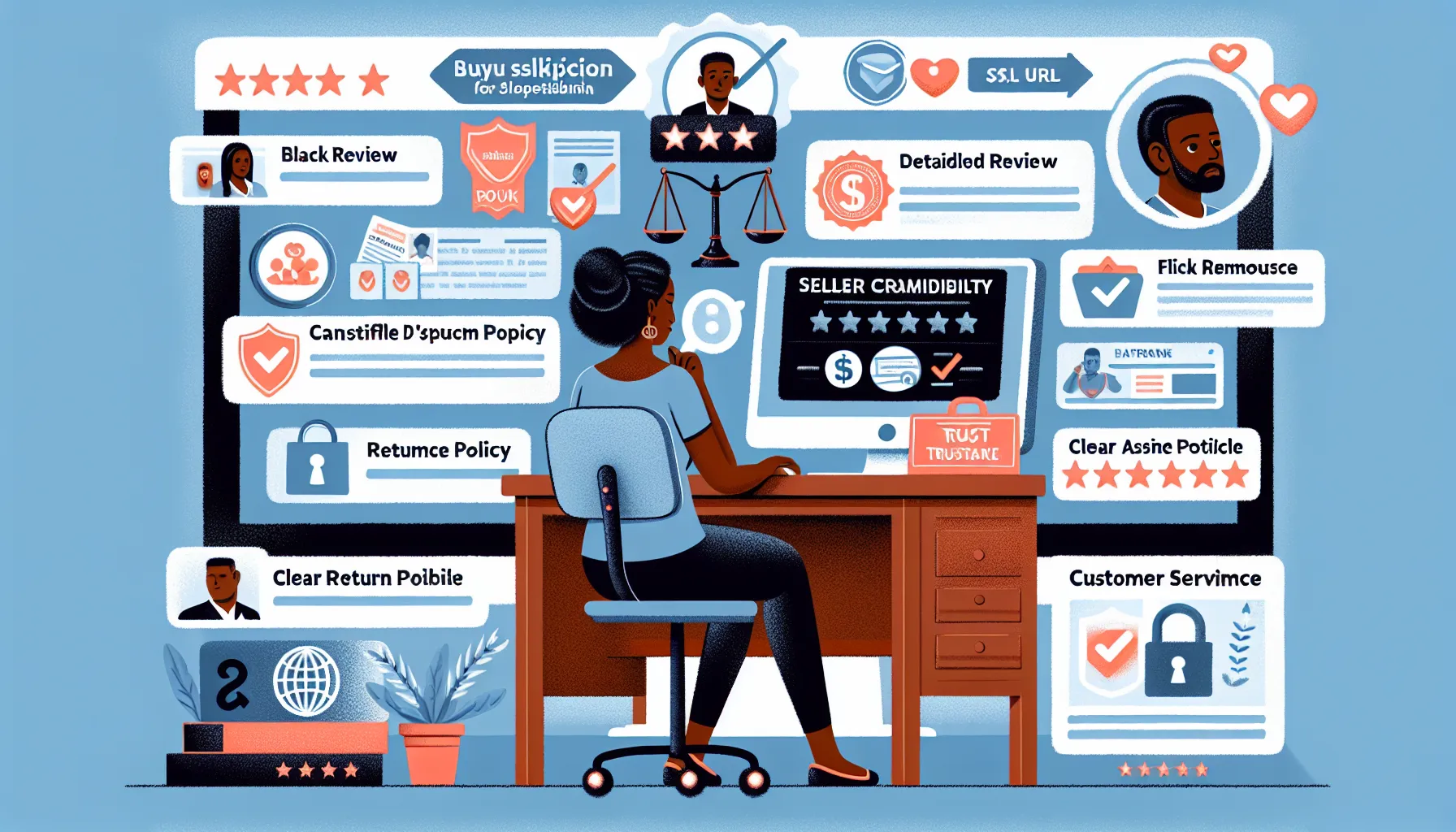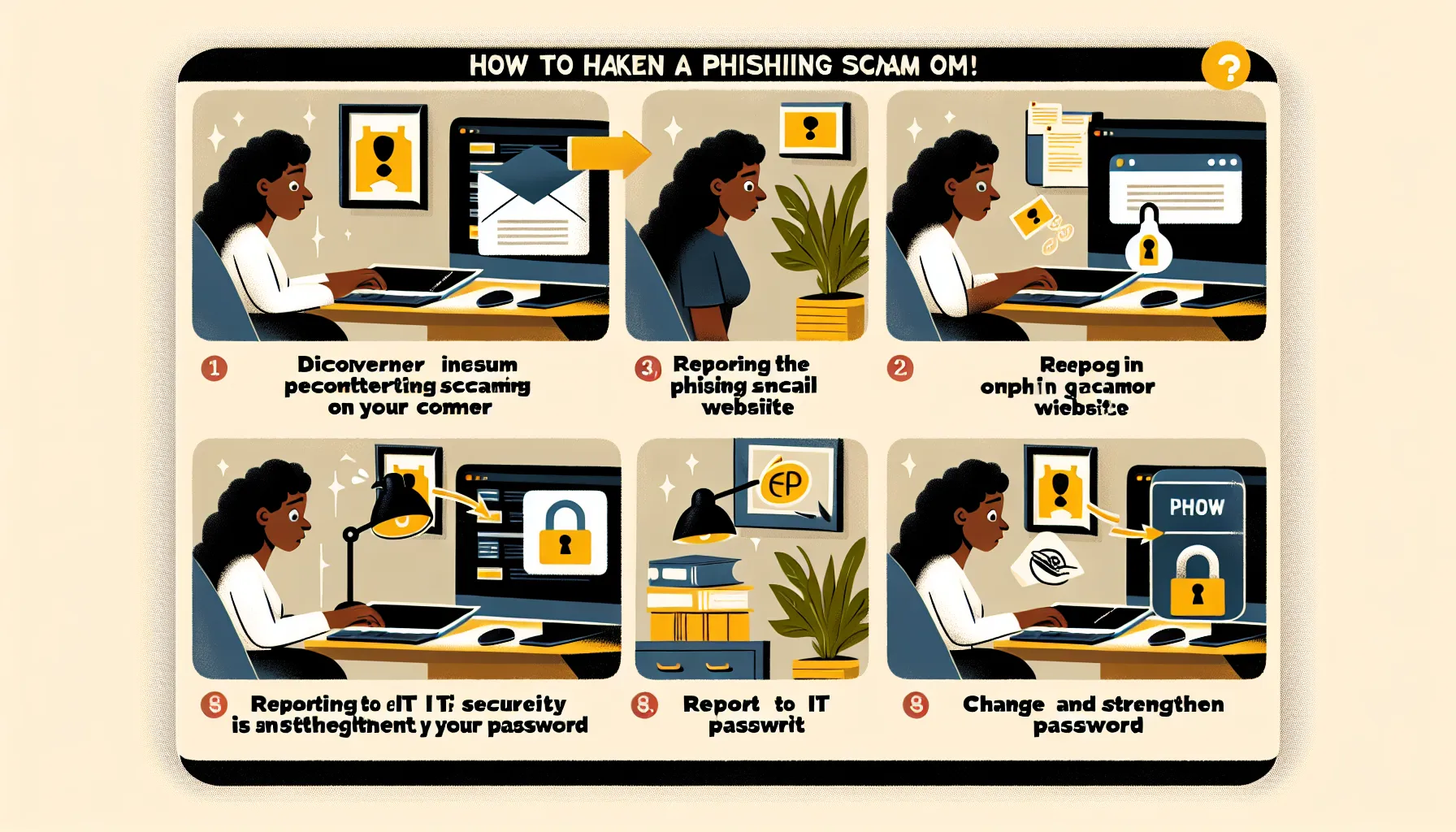How to Safely Buy Collector’s Coins Online: Avoiding Phishing Scams
Understanding the Risks of Online Coin Shopping
Spotting Red Flags: How Scammers Lure Coin Collectors
Picture this: you’re scrolling through an online marketplace, and there it is—a pristine, rare coin at an unbelievably low price. Your heart races. But hold on. If something feels too good to be true, it probably is. Scammers thrive on creating these "once-in-a-lifetime" deals to lure collectors into their traps.
So, how do they work their magic? Here are some telltale signs to watch out for:
- A 1794 Flowing Hair Silver Dollar for $200? No way. Know the market value before buying.
- If the seller's page is flooded with overly generic praise, take a closer look.
- “Limited time offer! Buy now or lose out forever!” Scammers count on rushed decisions.
These tricks aren’t just sneaky—they’re masterfully designed to exploit your excitement and trust. Always keep your wits about you. Remember, a genuine seller will never need to rush or manipulate you into making a purchase. Stay sharp and don’t let the thrill cloud your judgment!
Key Warning Signs of Phishing Scams in the Coin Market

Spotting the Red Flags: What to Watch For
Picture this: you're scrolling through a sleek website offering a rare 1933 Saint-Gaudens Double Eagle coin. It’s the holy grail of collectors, right? But something feels... off. Trust your gut! Phishing scams in the coin market often hide behind flashy websites and too-good-to-be-true deals.
Here’s what should set off alarm bells:
- Unrealistic prices: If a high-value coin is priced like a clearance sale, it's likely bait.
- Suspicious URLs: Look closely—does the site name have odd characters or extra letters, like “co1ncollect0r.com” instead of "coincollector.com"?
- Urgency tactics: Phrases like “Only 2 left!” or countdown timers are designed to make you act fast without thinking.
Another telltale sign? Poor grammar or awkward phrasing in emails or product descriptions. Legitimate sellers care about presentation, not just profit. If a message says something like, “You wins limited gold coin, click link for claim,” run the other way! Scammers love preying on excitement, but don’t let their tricks steal your treasure hunt joy. Always pause, verify, and proceed with caution.
Essential Tips for Secure Transactions When Buying Coins Online

Spotting the Red Flags: Don’t Let Scammers Tarnish Your Collection
Picture this: you’re scrolling through a site offering that rare coin you’ve been dreaming of—your heart skips a beat. But wait! Is it a genuine treasure or a cleverly disguised trap? Online scammers are slick, and their bait is tempting. Here’s how to outsmart them before they outsmart you.
First, examine the website’s security like a detective. Look for
“https” in the URL and a padlock icon. If it’s missing? Slam the brakes. Legitimate sellers invest in secure platforms because trust is their currency.
Next, scrutinize the seller’s reputation. A quick search can reveal if they’re golden or shady. Check for authentic customer reviews—not just glowing praise but detailed experiences. Beware of overly polished testimonials; they might be faker than a counterfeit coin.
And those irresistible “too-good-to-be-true” deals? They often are. If a $5,000 gold coin is offered for $500, don’t rush in with your credit card blazing.
- Stick to known marketplaces like eBay or certified auction houses.
- Verify the seller’s return policy—it’s your safety net.
Be cautious, not paranoid. Your dream coin deserves a home in your collection, not as part of a scammer’s success story.
Recommended Practices for Verifying Seller Credibility

Spotting Red Flags: Trust Your Instincts and the Facts
When you’re diving into the world of collector’s coins online, it’s a bit like walking through a treasure-filled maze—thrilling but full of traps. To avoid falling victim to phishing scams, you’ll need both a sharp eye and a healthy dose of skepticism. Start by examining the seller’s website or marketplace profile. Does it look professional, or does it scream "thrown together in five minutes"? Watch out for sloppy grammar, outdated design, or suspiciously vague product descriptions.
A trustworthy seller will leave a trail of credibility. Here are a few quick checks to keep your treasure hunt safe:
- Look for clear contact information—no email? Big red flag.
- Verify their social media presence. Legitimate sellers often have active profiles with real engagement, not ghost towns.
- Research their history. Are there glowing reviews or ominous warnings from past buyers?
And here’s a tip: if the price seems too good to be true, it probably is. Scammers love baiting collectors with “rare finds” at dirt-cheap prices. Don’t let greed cloud your judgment; trust the facts over fantasies.
Steps to Take if You Encounter a Phishing Scam

Spotting Red Flags: Protecting Your Passion
Buying collector’s coins online should feel like unearthing treasure, not walking into a trap. But phishing scams? They’re the digital equivalent of quicksand—sneaky and unforgiving. So how do you dodge them? By spotting the red flags before they pull you under.
Imagine this: You stumble upon a website offering a rare 1889 Morgan Silver Dollar at an impossibly low price. Your heart races. But hold up—
if it feels too good to be true, it probably is. Look for these signs that scream “scam”:
- Strange URLs or misspelled domain names (e.g., "coincollecterz.com").
- Pressure tactics like countdown timers urging you to "act now."
- Requests for payment via wire transfers or gift cards—red alert!
Now, let’s talk emails. If an email claims to be from your favorite coin dealer but asks for sensitive info, stop. Check the sender’s address closely—it might look legit, but one rogue letter can mean trouble. And remember: no reputable seller will ever ask for your password. Ever.
Stay sharp, trust your instincts, and don’t let scammers tarnish your collection dreams!





